5 things attracting roaches to your clean house and what you can change to stop it happening
Wondering why your clean house is still getting cockroaches? Pest controllers reveal what to do
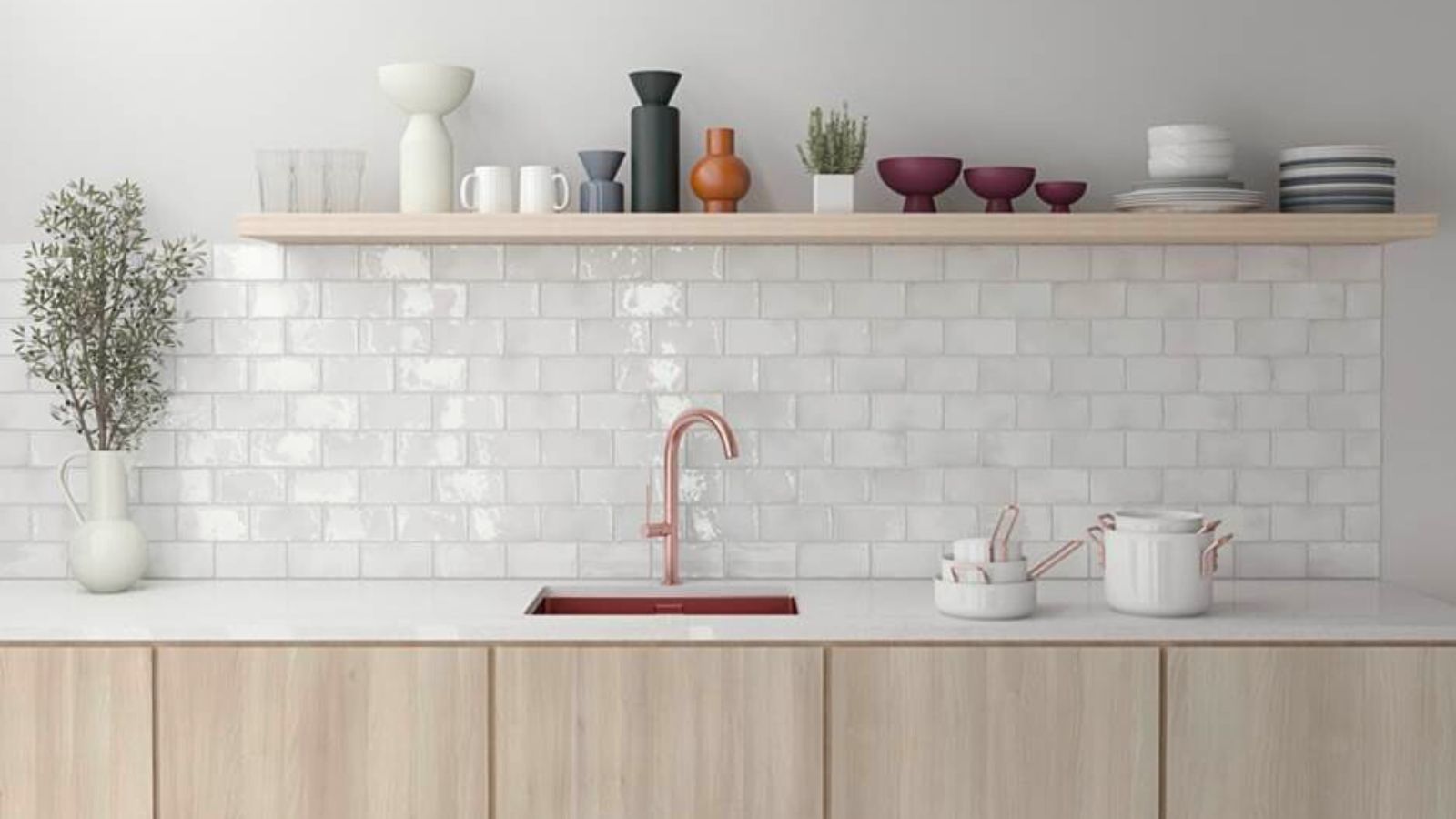

Cockroaches are a dreaded pest, and for a good reason. They are the survivalists of the insect kingdom, and contrary to belief they love dirty, dinghy places, roaches can and do colonize clean homes.
If it seems like you’re doing everything right to keep them away including keeping a spotlessly clean home but you're still seeing roaches inside, our professional pest controllers reveal the five things making your clean house a roach magnet including antique furniture and books.
While you can learn how to get rid of roaches naturally, prevention is better than cure.
Why you're still finding roaches in your clean house

You are probably picturing a damp, moldy home with a dirty kitchen suffering a roach infestation, but the truth is that cockroaches are resourceful and can find the things they need to survive almost anywhere.
Craig Sansig, Service Director at Viking Pest Control, explains cockroaches need three things to thrive, ‘harborage, access to moisture, and a food source.' Thinking roaches will stay away just because your home is clean is a common pest control mistake.
In terms of shelter, cockroaches can pick just about anywhere in your house and can be found Sansig says they can be found ‘inside cabinetry, compressor housings of refrigerators, and even inside appliances.’
Whilst they need water, roaches don’t need a lot to survive. In fact, some species, like the brown-banded cockroach, need very little moisture to sustain themselves. Most sub-species prefer easy access to small amounts of moisture, which is why they’re often found in sinks and under sink traps, which, Sansig adds, ‘always contain a small amount of water and this provides ample moisture to sustain cockroach activity.’
Even condensation on refrigerator coils can be enough for roaches, which is why you’ll sometimes have cockroaches in the kitchen despite there being no leak or obvious source of water.
Finally, there’s the food source requirement. While it’s true that roaches love crumbs and scraps often found in kitchens, they’ll just about anything, and that includes pastes, leather, feathers and even glue. The latter is why you might discover to your horror, roaches on your bookshelves because they like the glue in your books.
Why do roaches come into clean homes?

Given just how low-maintenance cockroaches are, it’s easy to see why they will take hold in even a very clean home. Craig Sansig confirms that he has been called out to eliminate cockroaches ‘in homes with live-in housekeepers, penthouse suites, and the most meticulously kept of homes.’
Professional pest controller and co-owner of Green Pest Management, Matt Smith says, ‘The difference is when tidy people get cockroaches, they get on the problem at first sight, instead of letting an infestation happen.’
One problem is that ‘cockroaches are very good at hiding’, says Matt. So, you may have a few of them lurking in your house and not even know it for a long time, which gives them time to reproduce and grow in numbers.
Why do cockroaches come into clean homes? The answer is that you most likely brought them in yourself without realizing it. While it is possible that they just came up the drains (more on that below), in most cases, clean homes get roaches from external sources. The cockroaches then decide it’s good enough for them to stay and stick around.
How do roaches get into clean homes?
The most common entry point is an unused drain. ‘Many species exist in sewer lines and may enter through infrequently utilized drains when the water evaporates out of the trap creating an open entryway’, explains Craig.
For that reason, little-used guest bathrooms can be a vulnerability. Roaches can come up through sinks, shower drains, and toilets. If any in your home are not used much, this could be why you’re getting cockroaches.
If you don’t have an underused bathroom and they’re in your home, you most likely brought them in with a purchase, right through your front door. The following things are common sources of roaches:
- Take-out food: Craig recommends being especially wary of ‘food delivered in repurposed restaurant boxes.’ It sounds off-putting, but it happens. Always check the reviews and hygiene rating of any place you order food from.
- Antique:. ‘Antiques are another common source for both cockroaches as well as bed bugs’, according to Craig. We’ll add used books here - remember how roaches like glue? If you’re buying a second-hand book, always open it in several places and check for roaches along the spine.
- Rental equipment. Hospital beds, wheelchairs, and even party equipment can harbor roaches, depending on where and how they’re stored when not in use. Again. Checking any equipment over before you bring in inside your home is the only way to prevent pests from entering your property.
- Moving vans. This situation is harder to control, but reading reviews of the moving company you’re planning to use beforehand should give you an idea of how clean their operation is. If there is nothing on their site or reviews, ask them.
- Neighbors. This is again a tougher factor to control as roach populations spilling over to your home from someone else’s infestation is fairly common. Craig advises, ‘This is most common in conjoined living situations like apartments and townhomes but can still occur from nearby standalone structures, especially during warm weather months.’
What can you do to eliminate cockroaches from a clean home?
The most important thing is to act as soon as you’ve noticed the problem. Matt Smith highly recommends making a move ‘as soon as you see any activity. It is much easier to battle a few instead of a colony.’
First, ‘Make food hard to find, tidy up and make shelter hard to find.’ This may involve moving furniture around, cleaning and tidying behind kitchen appliances and furniture - in other words, doing all the cleaning tasks you usually put off doing.
Disturb the roaches and make your home inhospitable to them, achieved with lots of cleaning. And, trust us when we say that this is not the time to be using your mild, fragrance-free cleaning supplies.
Next, pay attention to those drains. If you know you have underused drains in your home, Craig recommends wetting them regularly. ‘After wetting infrequently used drains, a small amount of mineral oil can be placed in the drains to float on the surface and slow evaporation of the water.’ Try UltraPro food-grade mineral oil, available at Walmart.
Products experts recommend to get rid of roaches
Matt Smith recommends going heavy on the fragrance. ‘A lot of cleaners have smells and ingredients in them roaches don't like such as citrus smells or mint.’
Both citrus and mint are effective repellents for a whole range of pests, so it’s always a good idea to go for cleaning sprays that contain either of those. You can also DIY it with sprays containing citrus or mint essential oils and using them in the areas you know are vulnerable to roaches, such as behind your fridge or under the sink.
You can try orange peel to deter pests, but a strong essential oil will be much more effective. Our favorite is the Mighty Mint Cockroach Repellent Natural Peppermint Oil Spray, available on Amazon.
If one product has not worked, don’t despair. Matt Smith urges perseverance: ‘I would suggest getting more than one product to fight these pests. Sometimes we have to go back and reapply with a different spray.’
In addition to cleaning sprays, you can try using baits that ‘make sure roaches can't reproduce and will be spread from one roach to another.’ Cockroach bait products are abundantly available on Amazon and range from gels to bait stations.
When to call the experts
How effective any of these products will be depends primarily on how bad your problem is. If you have only a few cockroaches, you may well be able to get rid of them by using the methods outlined above. If you have a full-blown infestation, though, you should call a professional.
It’s not just about the scale of the problem, either. Craig Sansig says, ‘Some over the counter products have high rates of resistance.’ This means the chemicals no longer kills cockroaches, or the ones in your area have evolved to ‘genetically pass down a dislike for the flavor which causes them to avoid baits.’
And, whatever else you do, don’t use total release foggers, (aka bug bombs): these ‘may drive cockroaches deeper into a structure making control more difficult in the long run’, says Craig.
So, if you’ve tried for a few weeks and are still seeing them, call a pest controller.
Meet the experts

Craig is an Associate Certified Entomologist, Public Health Entomologist with 23 years professional pest management experience. He holds licenses in eight pest control categories in four states and has been the Service Director for Viking since 2020.

Matt Smith has been working in the pest control industry since 2009. He is a co-owner of Green Pest Management which was started in 2014 in New Castle, Delaware. With his background and experience he is knowledgeable about a variety of pests, pest activity, and ways of dealing with pests infesting homes.
Yes, clean homes get pests too, even roaches. It doesn't mean you've not been cleaning enough, or that you'll never get rid of the critters. Be proactive, experiment with different cleaning sprays and baits, and know that if all else fails, there will be a local pest pro who'll be able to help you eliminate cockroaches once and for all.
Sign up to the Homes & Gardens newsletter
Design expertise in your inbox – from inspiring decorating ideas and beautiful celebrity homes to practical gardening advice and shopping round-ups.

Anna is a professional writer and academic. She taught English Literature for several years before joining Future where she wrote for Real Homes, Homes & Gardens and Livingetc for four years. She is a regular contributor for Parade Home, BiggerPockets, and many other publications. In her spare time, Anna enjoys hiking and gardening.
-
 Ina Garten's storage pantry is an insightful window into all of the best cookware used by the chef – and it's easy to recreate on your kitchen shelves from $48
Ina Garten's storage pantry is an insightful window into all of the best cookware used by the chef – and it's easy to recreate on your kitchen shelves from $48The beautiful dishware in The Barefoot Contessa's Hamptons pantry showcases the tools she uses most often to cook – this is exactly how you replicate it
By Sophie Edwards Published
-
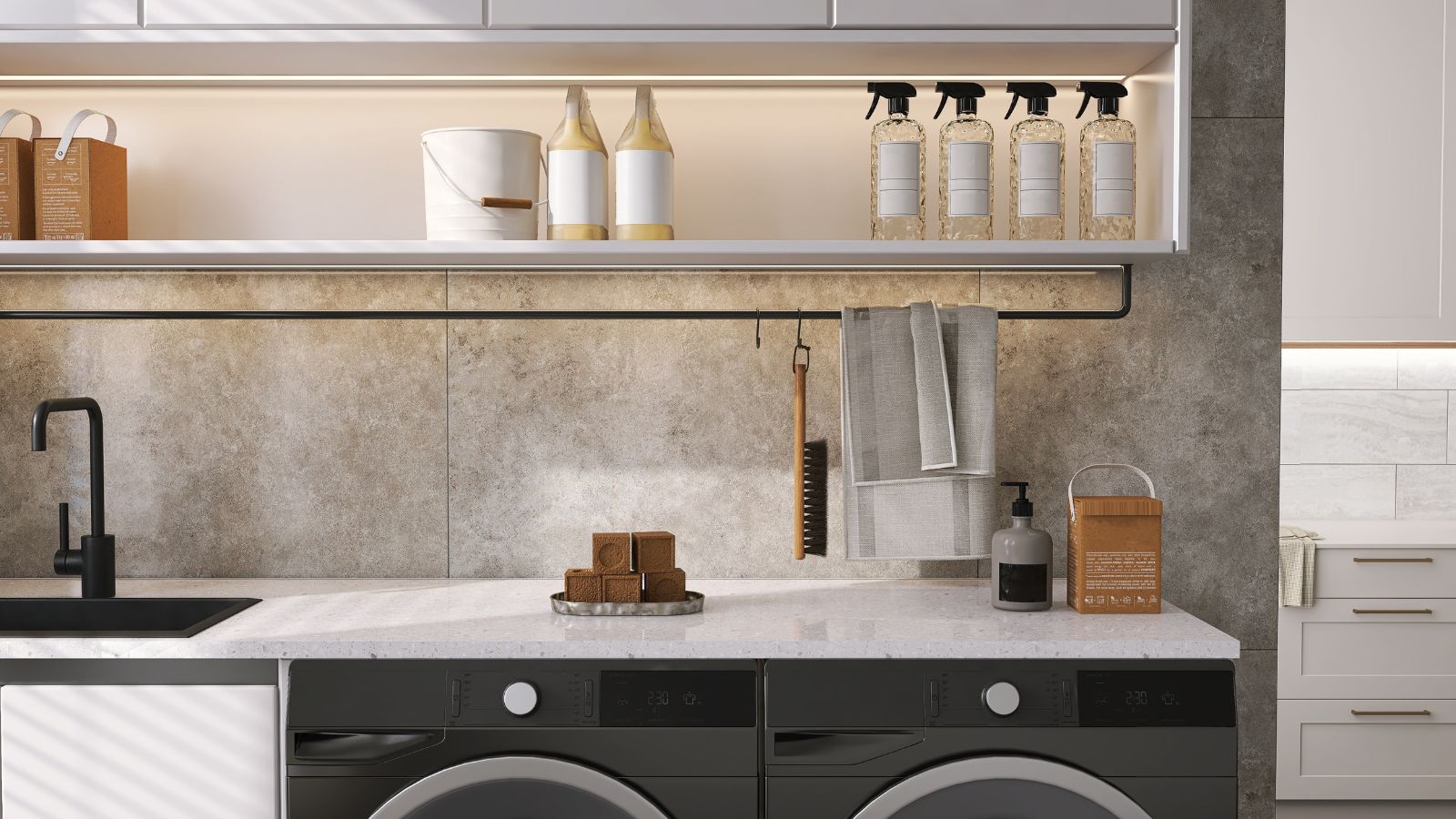 Extend the lifespan of your appliance with 5 simple but crucial washing machine maintenance tips
Extend the lifespan of your appliance with 5 simple but crucial washing machine maintenance tipsFrom cleaning the filters to keeping the door open, experts reveal the washer tips they swear by
By Andy van Terheyden Published
-
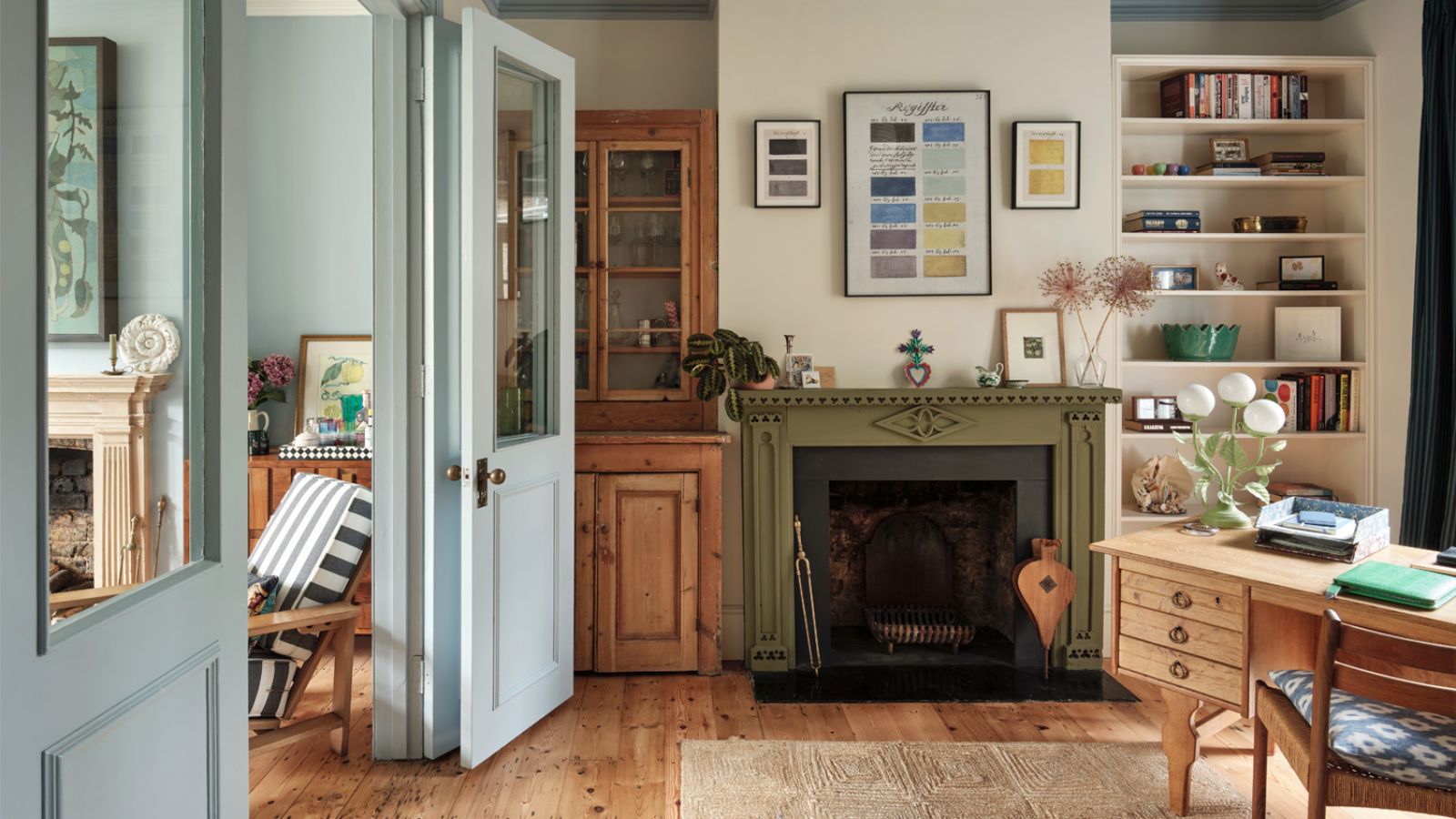 5 surprising but brilliant ways to clean with old socks – from perfectly buffing stainless steel to deterring pests naturally and more
5 surprising but brilliant ways to clean with old socks – from perfectly buffing stainless steel to deterring pests naturally and moreTackle dust in tricky corners, clean your mirrors and even banish bad odors with those rogue single socks
By Andy van Terheyden Published
-
 5 things people with clean upholstery always do – simple, quick and oh-so-effective
5 things people with clean upholstery always do – simple, quick and oh-so-effectiveEnsure your furnishing looks clean year-round with these expert tips
By Seraphina Di Mizzurati Published
-
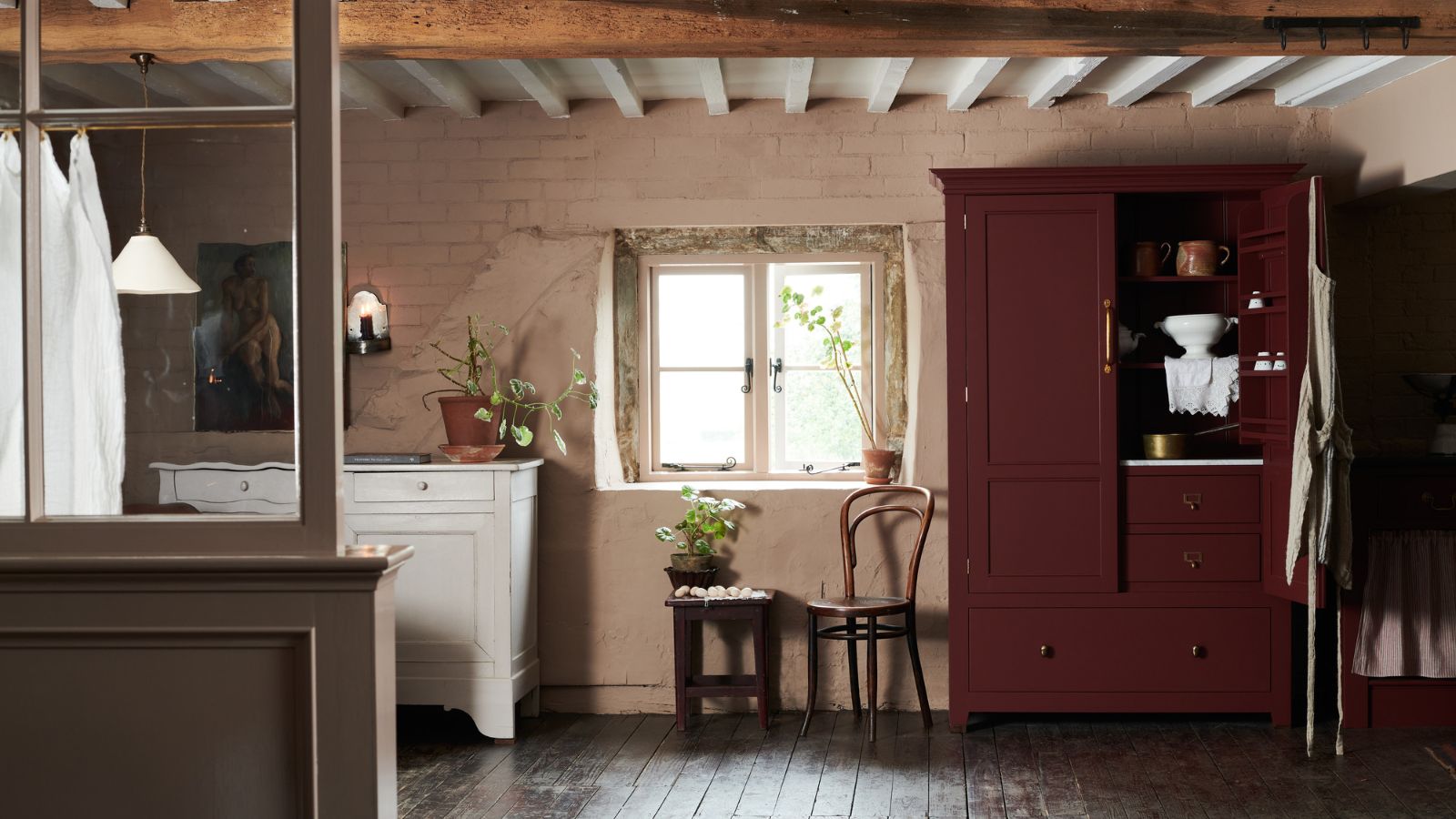 'Wick away the ick' – 6 things people with clean laundry rooms always do to make this hardworking space shine
'Wick away the ick' – 6 things people with clean laundry rooms always do to make this hardworking space shineThese tips on how to clean your laundry room will banish grime
By Seraphina Di Mizzurati Published
-
 How safe are carpet deodorizers? As a seasoned vacuum tester, I urge you to try alternative methods
How safe are carpet deodorizers? As a seasoned vacuum tester, I urge you to try alternative methodsNatural cleaning is always the answer
By Dan Fauzi Published
-
 'The world will not end' – 5 cleaning habits to quit for a happier, easier life, and what to do instead
'The world will not end' – 5 cleaning habits to quit for a happier, easier life, and what to do insteadGet your home sparkling, minus the stress
By Ciéra Cree Published
-
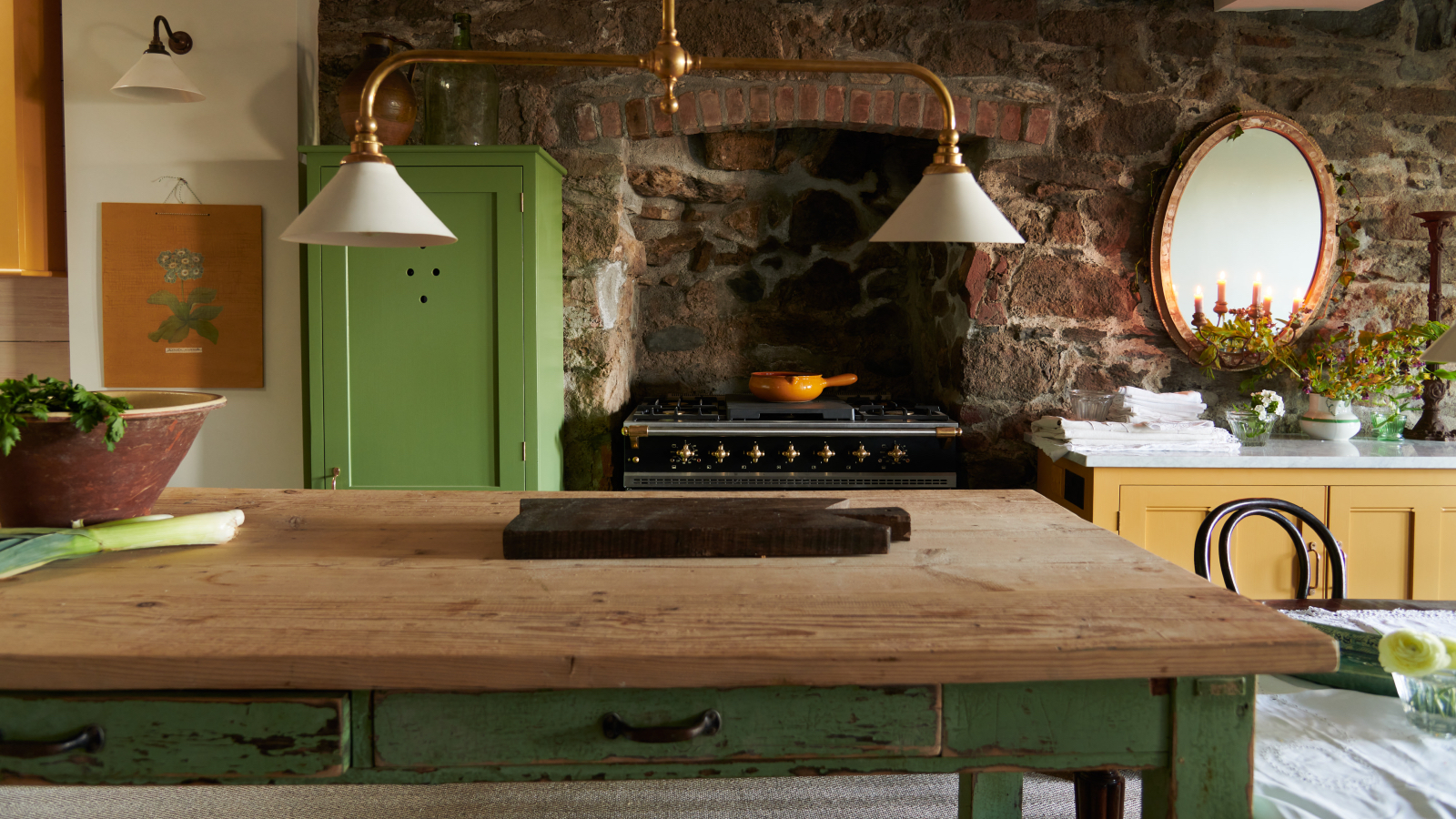 9 things you can clean with glycerin – this cheap and natural cleaner is perfect for indoor and outdoor use
9 things you can clean with glycerin – this cheap and natural cleaner is perfect for indoor and outdoor useFrom patio furniture to silverware, this hydrating and gentle cleaning agent will work miracles
By Ciéra Cree Published
-
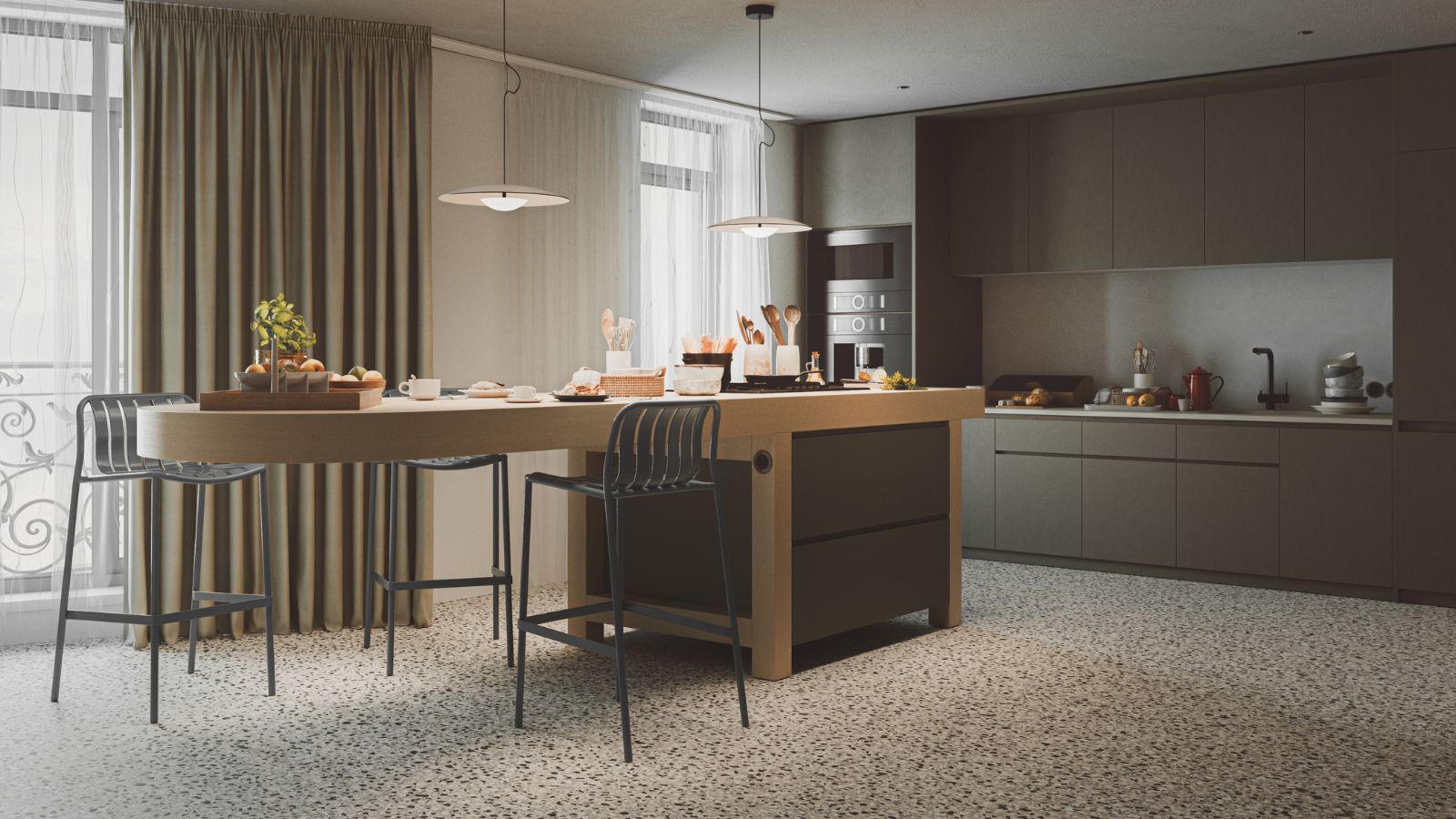 How to clean a terrazzo floor in 5 steps – expert tips to scrub, shine, and seal this sparkling floor finish
How to clean a terrazzo floor in 5 steps – expert tips to scrub, shine, and seal this sparkling floor finishAvoid damage and protect it's shine with these expert tricks
By Chiana Dickson Published
-
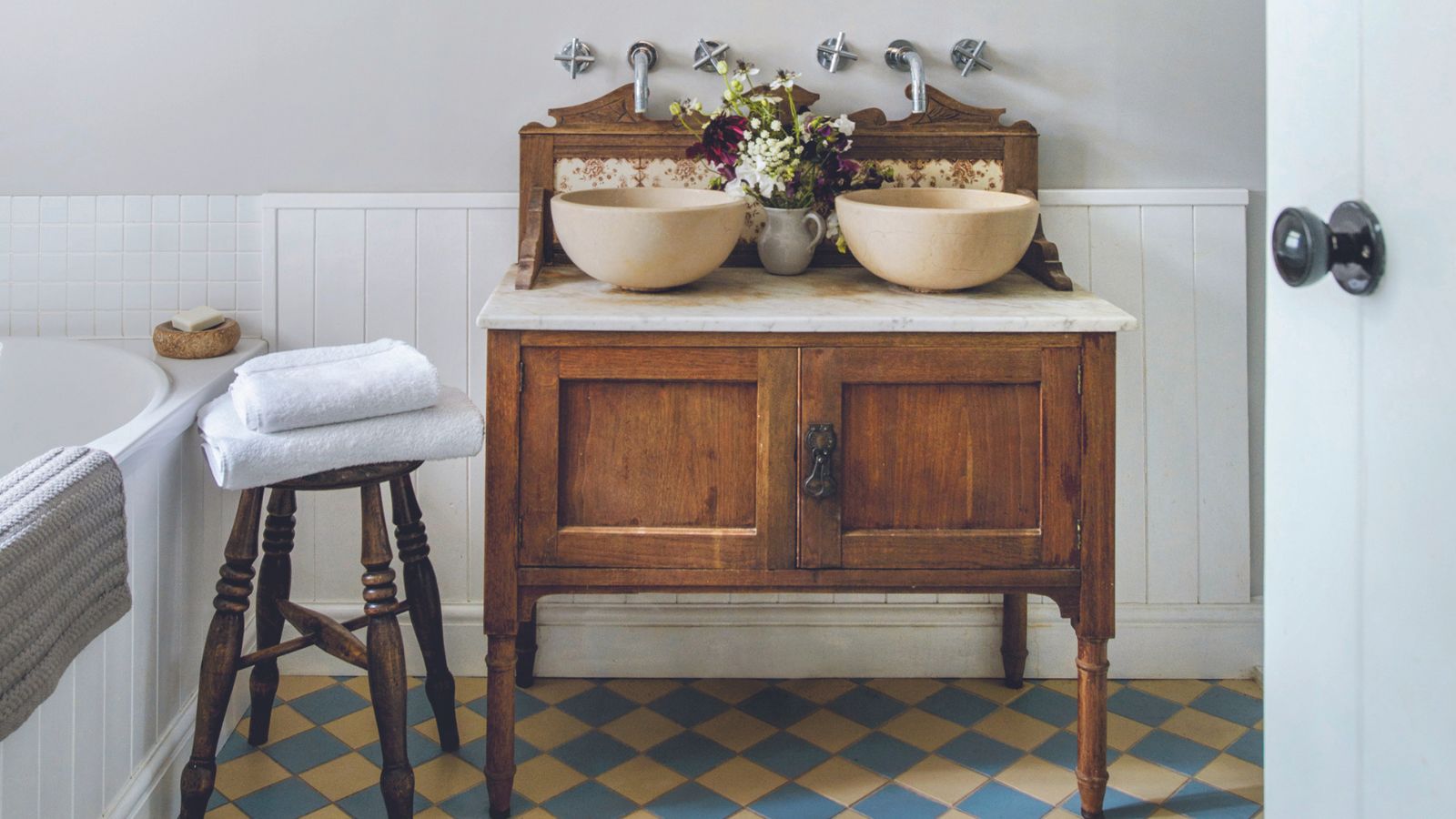 I'm 5ft2 and this telescopic scrubber safely and easily banished mold and grime in even the hardest-to-reach areas of my bathroom in less than 15 minutes
I'm 5ft2 and this telescopic scrubber safely and easily banished mold and grime in even the hardest-to-reach areas of my bathroom in less than 15 minutesMy bathroom has never looked better thanks to this handy $16 two-in-one tool from Joseph Joseph
By Ottilie Blackhall Published